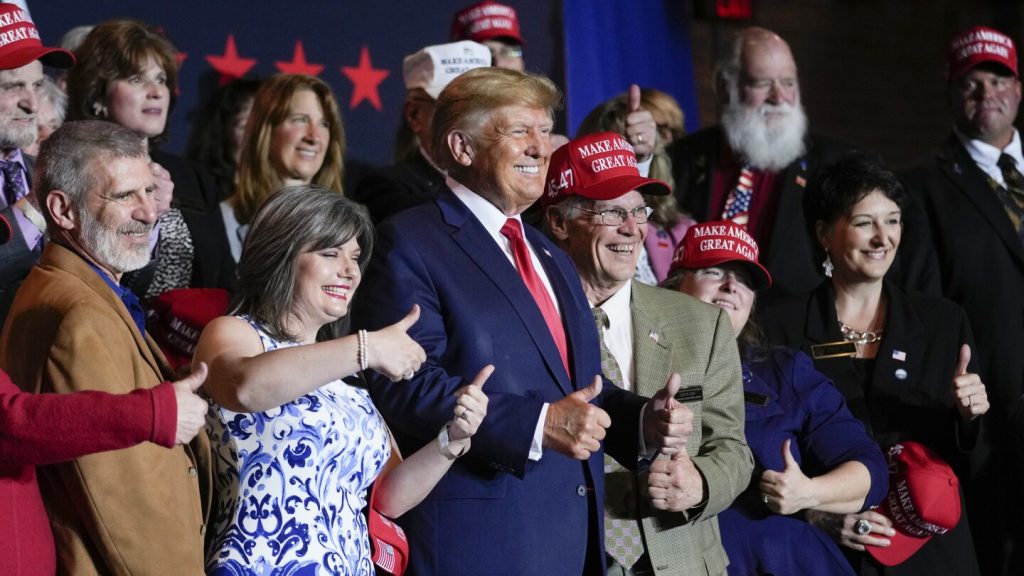The deep divide in American politics is evident in the way supporters refer to Donald Trump and Joe Biden. A study analyzing political ads on Facebook and Instagram found that pro-Trump ads still refer to him as “President Trump,” signaling loyalty and agreement with false election claims. This reflects the polarization that has taken over American politics and society, as words can be just as telling as symbols like MAGA caps. The research was led by Jennifer Stromer-Galley, a professor at Syracuse University, who analyzed over 24,000 political ad buys that cost $15 million and were displayed nearly 870 million times from September 2023 to February.
In the United States, the title of president is reserved for the current office holder, and federal law uses the term “former president” for previous occupants of the White House. However, Trump’s attorneys have used the honorific “President Trump” to refer to him in his criminal trial, while prosecutors have referred to him as “the defendant.” This departure from traditional norms reflects the unique loyalty and respect that Trump’s supporters have for him, as they feel he is their defender against perceived disrespect and attacks from the media and political establishment.
Despite historical precedents of withholding honorifics for disliked presidents, such as cries of “not my president!” directed at Barack Obama, George W. Bush, and Trump, the trend among Trump supporters is different. These past protests were not based on false allegations of election fraud, which adds a new layer to the current political divide in the country. University of Kansas professor Robert Rowland, who studies presidential rhetoric, notes that the language we use reflects the deep divisions within society and politics.
Etiquette expert Daniel Post Senning explains that Americans have increasingly applied the title of president to former office holders in recent decades, out of respect for their service. While technically incorrect, this informal usage is meant to show reverence for individuals who have held the highest office in the country. Some of Trump’s most loyal supporters have taken their admiration to extreme levels, with fan clubs and online groups dedicated to praising him as the best president in their lifetime. Despite not agreeing with all of Trump’s claims, supporters like Mark Allan Oliver believe in his policies and view him as unfairly persecuted by the media and political establishment.
Overall, the study on political ad language usage highlights the stark divide in American politics and the importance of words in signaling political affiliations and beliefs. The continued reference to Trump as “President Trump” in pro-Trump ads reflects a deep loyalty and ideological agreement among his supporters, who stand behind him despite his departure from the White House. This ongoing polarization, fueled by false election claims and perceived disrespect towards Trump, has permeated society and online discourse, shaping how Americans perceive and refer to their political leaders. As the country navigates through these divisions, understanding the impact of language and rhetoric in shaping political discourse becomes increasingly important.


